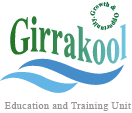17
September6 Things Your Mom Should Have Taught You About Addiction Treatment Thailand
Introduction
Alcohol detoxification is a vital procedure into the trip of data recovery for individuals fighting alcoholic beverages addiction. It aims to eradicate toxins through the body while handling detachment signs. This report explores the importance of alcoholic beverages detoxification, the symptoms experienced during detox, and the methods utilized assuring a safe and effective detoxification procedure.
Need for Alcohol Detoxification
Liquor cleansing plays a crucial role in addiction data recovery as a result of the actual and emotional reliance that develops eventually. Persistent alcoholic abuse results in alterations in mind chemistry, leading to withdrawal symptoms when drinking is ceased. These signs may include tremors, anxiety, insomnia, sickness, as well as seizures. By undergoing detox, people can over come the instant physical ramifications of liquor withdrawal, setting the phase for additional therapy and long-term recovery.
Signs Experienced During Alcohol Detoxification
During alcoholic beverages detox, individuals may experience many detachment symptoms that will differ in seriousness. Minor signs can sometimes include shaking, sweating, and headaches, while worse cases can include hallucinations, delirium, and seizures. The strength and length among these signs be determined by different factors, including the quantity and extent of alcohol abuse, specific health conditions, and past detox experiences. It is important to observe that these symptoms may be deadly, highlighting the need of healthcare guidance during detox procedure.
Types of Alcohol Detox
You can find different ways and configurations designed for alcohol cleansing, which are often categorized into outpatient, inpatient, and hospital-based detox services. Outpatient detoxification programs provide flexibility, enabling people to get therapy while living at home. But they truly are generally speaking suitable for those with moderate detachment symptoms and a good assistance system. Inpatient detox programs provide a controlled environment with 24/7 medical care, guaranteeing instant attention to any complications which will arise. Hospital-based detoxification, alternatively, would work for people with extreme detachment symptoms, calling for a higher level of medical intervention.
During cleansing, health professionals may administer medications to ease detachment symptoms and linked web-site lower disquiet. Medications including benzodiazepines, anticonvulsants, and anti-anxiety drugs are generally familiar with handle withdrawal signs efficiently. Also, medical professionals track essential signs, provide counseling solutions, and implement a comprehensive treatment solution to deal with the underlying reasons for alcoholic beverages addiction.
Summary
Alcohol cleansing is a critical step towards recovery, aiding people in handling detachment symptoms and reducing the threat of problems. It gives a safe and monitored environment for individuals to get rid of toxins from their health and prepares all of them for further treatment modalities. But is important to identify that detoxification alone is certainly not a whole answer but rather the original phase of a comprehensive treatment solution. After detox, people should really be promoted to take part in counseling, therapy, and organizations to handle the mental and personal components of alcoholic beverages addiction. By acknowledging the value of alcohol detox and supplying extensive attention, medical specialists could offer individuals experiencing alcoholic beverages addiction a greater possibility at lasting data recovery.

